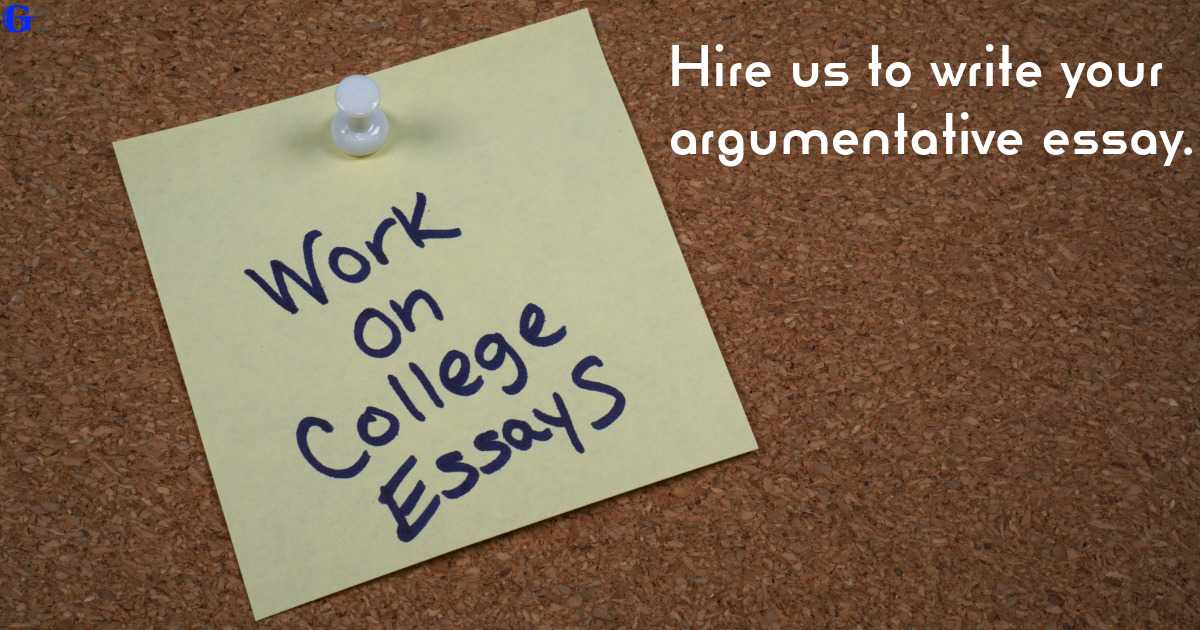How to Write an Argumentative Essay Like a Pro in 2025

Table of Contents
Write Essays That Persuade: A Step-by-Step Guide to Write An Argumentative Essay
Introduction
Writing an argumentative essay is a cornerstone of academic and intellectual development. It demands not merely the regurgitation of facts but the ability to critically analyze information, construct a persuasive argument, and effectively communicate your perspective to an audience. This guide will delve into the intricacies of crafting a well-structured and compelling argumentative essay, equipping you with the essential tools and strategies to succeed.

1] Choosing a Compelling Topic
The selection of your topic is paramount. It should not merely be a subject you find interesting but one that lends itself to robust debate and allows for nuanced exploration.
-
Brainstorming Beyond the Obvious:
-
- Delve into your passions: What issues ignite your curiosity? Are you passionate about environmental conservation, social justice, or technological advancements?
- Explore current events: Analyze recent news articles and identify topics that provoke strong opinions and generate significant public discourse.
- Consider your academic interests: Examine the subjects you are currently studying. Are there any controversial issues within your field of study that you can investigate further?
-
Beyond Personal Interest: Audience and Impact
Consider who your audience is. Are you writing for a class assignment, a scholarly journal, or a general audience? Understanding your audience will guide your tone, language, and the complexity of your arguments.
-
The Essence of Debate: Choosing a Debatable Topic
Avoid topics with easily discernible answers. Seek out issues that elicit diverse viewpoints and offer room for nuanced discussion. For instance, instead of arguing that “pollution is bad,” consider exploring the debate surrounding the most effective methods for mitigating plastic pollution, such as government regulations, consumer responsibility, or technological innovations.
2] Conducting Thorough Research
A well-supported argument relies on a solid foundation of research.
-
Beyond Google: A Diverse Information Landscape
While online resources can be valuable, expand your search beyond simple Google searches. Explore academic databases (like JSTOR, Google Scholar), reputable news sources (The New York Times, The Economist), and government publications for in-depth and reliable information.
-
Evaluating Sources: Beyond Face Value
Critically assess the credibility and reliability of your sources. Consider the author’s credentials and expertise. Evaluate the publication’s reputation and potential biases. Look for evidence of peer review and rigorous fact-checking. Cross-reference information from multiple sources to ensure accuracy and validity.
-
Effective Note-Taking: Organizing the Information
Organize your research effectively to avoid information overload. Use a consistent note-taking system: Utilize index cards, digital note-taking software (like Evernote or OneNote), or a dedicated research notebook. Summarize key findings in your own words: Avoid plagiarism by paraphrasing information and properly citing your sources. Categorize information: Group related findings together to identify patterns and connections.
3] Crafting a Compelling Thesis Statement
Your thesis statement is the cornerstone of your essay. It serves as the central claim that your entire essay will strive to support.
-
Clarity and Conciseness: A Single, Powerful Statement
Express your position on the issue in a clear and concise manner. Aim for a single, declarative sentence that encapsulates the core argument of your essay.
-
Debatable Claims: Moving Beyond Statements of Fact
Avoid stating easily verifiable facts. Your thesis statement should present an arguable claim that invites critical analysis and counterarguments. For example, instead of stating “Climate change is real,” argue that “Government policies should prioritize the transition to renewable energy sources to effectively combat climate change.”
-
Specificity: Defining the Scope of Your Argument
Clearly define the scope and focus of your argument. Avoid overly broad statements that are difficult to adequately address within the confines of your essay. For example, instead of arguing that “technology has had a significant impact on society,” focus on a specific aspect, such as “The rise of social media has contributed to the erosion of privacy and the spread of misinformation.”
Learn more on the Pomodoro Technique for Better Studying
4] Structuring Your Essay
A well-structured argumentative essay provides a clear and logical roadmap for your reader.
-
The Introduction: Hooking the Reader and Setting the Stage
-
- The Hook: Capturing Attention
- Begin with a compelling hook to grab the reader’s attention. This could be a thought-provoking question, a vivid anecdote, a surprising statistic, or a provocative statement.
- Example: “Imagine a world where every individual has access to quality education, regardless of their socioeconomic background. Would this utopian vision lead to a more equitable and prosperous society?”
- Providing Context: Setting the Stage
- Briefly introduce the issue and provide necessary background information to help the reader understand the context of your argument.
- Example: “The debate surrounding universal basic income has gained significant traction in recent years, with proponents arguing that it would alleviate poverty, reduce income inequality, and stimulate economic growth.”
- The Thesis Statement: The Foundation of Your Argument
- Clearly state your thesis statement at the end of the introduction to provide a clear roadmap for the reader.
- The Hook: Capturing Attention
-
Body Paragraphs: Building a Case with Evidence
-
- Topic Sentences: Guiding the Reader
- Each body paragraph should begin with a topic sentence that introduces the main idea of the paragraph and connects it back to the thesis statement.
- Supporting Evidence: Building a Strong Case
- Facts and Statistics: Utilize data and statistics to support your claims.
- Example: “According to a study published in the Journal of the American Medical Association, countries with universal healthcare systems have lower infant mortality rates and longer life expectancies.”
- Expert Opinions: Cite quotes and opinions from respected authorities in the field.
- Example: “As Nobel Prize-winning economist Joseph Stiglitz argues, “Inequality is not only unfair, it’s also bad economics.”
- Examples and Anecdotes: Use real-world examples and anecdotes to illustrate your points and make your arguments more relatable.
- Example: “For instance, the city of Stockton, California, implemented a pilot program providing a basic income to low-income residents. Preliminary results suggest that the program helped reduce poverty and improve overall well-being.”
- Logical Reasoning: Building a Convincing Argument
- Use deductive or inductive reasoning to connect your evidence to your claims and build a compelling argument.
- Deductive Reasoning: Start with a general principle and apply it to a specific case.
- Inductive Reasoning: Draw general conclusions based on specific observations and evidence.
- Use deductive or inductive reasoning to connect your evidence to your claims and build a compelling argument.
- Facts and Statistics: Utilize data and statistics to support your claims.
- Addressing Counterarguments: Demonstrating Intellectual Rigor
- Acknowledge and address opposing viewpoints to demonstrate intellectual rigor and strengthen your argument.
- Example: “While some critics argue that universal basic income would discourage work and incentivize dependency, studies have shown that this is not necessarily the case. In fact, many recipients of basic income programs use the additional funds to invest in education, start businesses, or pursue other opportunities for self-improvement.”
- Topic Sentences: Guiding the Reader
-
The Conclusion: Leaving a Lasting Impression
-
- Restating the Thesis: A New Perspective
- Restate your thesis statement in a new and insightful way, summarizing your key arguments in a concise and impactful manner.
- Summarizing Main Points: A Concise Recap
- Briefly summarize the main points of your essay, emphasizing the significance of your findings.
- Discussing Implications: Looking Beyond the Essay
- Discuss the broader implications of your argument. How does your analysis contribute to a deeper understanding of the issue? What are the potential consequences of your proposed solutions?
- Offering a Final Thought or Call to Action
- Leave the reader with a final thought or a call to action. Encourage them to consider the issue further, conduct their own research, or engage in meaningful discussion.
- Example: “Ultimately, the debate surrounding universal basic income requires careful consideration and ongoing dialogue. By engaging in open and honest discourse, we can work towards a more equitable and just society for all.”
- Restating the Thesis: A New Perspective
5] Writing with Clarity and Conciseness
-
Precise Language: Choosing the Right Words
-
- Use precise and accurate language to effectively convey your meaning. Avoid vague or ambiguous terms that could confuse the reader.
- Example: Instead of using the word “good,” use more specific adjectives such as “beneficial,” “effective,” or “significant.”
-
Maintaining a Formal Tone: Professionalism and Credibility
- Maintain a formal and professional tone throughout your essay. Avoid slang, jargon, and overly casual language.
-
Varying Sentence Structure: Keeping the Reader Engaged
- Use a mix of simple, compound, and complex sentences to maintain reader interest and ensure your writing flows smoothly.
-
Proofreading and Editing: Refining Your Work
- Thorough Proofreading: Carefully review your essay for any grammatical errors, typos, or inconsistencies.

6] Revising and Editing
- Thorough Proofreading: Carefully review your essay for any grammatical errors, typos, or inconsistencies.
- Utilize proofreading tools: Utilize spell-checkers and grammar-checking software, but always double-check their suggestions manually.
- Read your essay aloud: Reading your work aloud can help you identify awkward phrasing, grammatical errors, and areas where your writing may not flow smoothly.
- Get a second pair of eyes: Share your essay with a peer, mentor, or writing tutor for a fresh perspective and constructive feedback.
- Revising for Content: Evaluating and Strengthening Your Arguments
- Evaluate the strength of your arguments: Does each body paragraph effectively support your thesis statement? Are your arguments logically sound and well-supported by evidence?
- Assess the clarity of your ideas: Are your ideas presented in a clear and concise manner? Can the reader easily follow your train of thought?
- Consider the overall effectiveness of your essay: Does your essay effectively persuade the reader of your viewpoint? Does it leave a lasting impression?
- Editing for Mechanics: Refining the Technical Aspects
- Check for grammatical accuracy: Ensure proper subject-verb agreement, pronoun-antecedent agreement, and correct use of punctuation.
- Pay attention to sentence structure: Vary your sentence structure to avoid monotony and improve readability.
- Refine your word choice: Use precise and impactful language to enhance the clarity and conciseness of your writing.
Learn how to structure a college-level essay.
7] Citations and References
-
Proper Citation: Avoiding Plagiarism
- Choose a Citation Style: Select a consistent citation style (e.g., MLA, APA, Chicago) and adhere to its guidelines meticulously.
- Accurate and Consistent Citation:
- Include all necessary information for each source cited, such as author, title, publication date, and page number (if applicable).
- Ensure that all citations are formatted correctly and consistently throughout your essay.
-
Creating a Bibliography: A Complete List of Sources
- Compile a Comprehensive List: Create a bibliography that includes all sources cited in your essay.
- Organize the Bibliography: Organize your bibliography alphabetically by author’s last name according to your chosen citation style.
Example of an MLA Citation:
- In-text citation: (Author’s Last Name Page Number)
- Example: (Smith 12)
- Works Cited entry:
- Author Last Name, First Name. Book Title. Publisher, Publication Year.
Example of an APA Citation:
- In-text citation: (Author’s Last Name, Year)
- Example: (Smith, 2023)
- References entry:
- Author Last Name, F. M. (Year). Book title. Publisher.
8] Beyond the Essay
-
Sharing Your Work: Seeking Feedback and Engaging with Others
- Share your essay with others: Share your work with peers, mentors, or writing groups to receive constructive feedback and gain new perspectives.
- Engage in discussions: Participate in discussions and debates related to your topic to further refine your understanding and engage with diverse viewpoints.
-
Continuing the Learning Process: Becoming a More Effective Writer
- Reflect on your writing process: Analyze your strengths and weaknesses as a writer. Identify areas for improvement and develop strategies for overcoming challenges.
- Practice consistently: Consistent writing practice is essential for improving your writing skills.
- Read widely: Read diverse texts, including novels, articles, and essays, to expand your vocabulary, improve your understanding of different writing styles, and enhance your overall writing abilities.

9] Common Questions on How to Write an Argumentative Essay
What is the best way to write an argumentative essay?
The best approach involves a structured framework:
- Choose a compelling topic: Select a debatable issue that interests you.
- Conduct thorough research: Gather credible evidence from various sources.
- Develop a strong thesis statement: Clearly articulate your main argument.
- Structure your essay with a clear introduction, body paragraphs, and conclusion.
- Write with clarity and conciseness: Use precise language and maintain a formal tone.
- Revise and edit meticulously to refine your work.
- Properly cite all sources to avoid plagiarism.
How to write a short argumentative essay?
Prioritize conciseness by focusing on the most crucial arguments. Use concise language and avoid unnecessary details. Lastly, structure your essay efficiently with a brief introduction, a few focused body paragraphs, and a concise conclusion.
How to write an argument essay under 30 minutes?
Writing a complete essay in under 30 minutes is challenging. First, focus on a very narrow topic. Draft a concise outline with key arguments and supporting evidence. The next step is to write a brief introduction and conclusion. Lastly, prioritize clarity and conciseness over extensive elaboration.
What is a lesson plan for writing an argumentative essay?
A typical lesson plan may include:
- Introduction to argumentation: Defining key concepts and components.
- Topic selection and brainstorming: Guiding students in choosing a suitable topic.
- Research and note-taking: Teaching effective research strategies and note-taking techniques.
- Thesis statement development: Helping students craft clear and debatable thesis statements.
- Essay drafting and outlining: Providing guidance on structuring the essay effectively.
- Peer review and revision: Facilitating peer feedback and revision processes.
- Final editing and proofreading: Assisting students in polishing their essays for submission.
How long is an argumentative essay?
The length varies depending on the assignment requirements and the complexity of the topic. Typical lengths can range from 500 to 2000 words or more.
How to write an argumentative research paper?
Writing a research paper requires extensive research and a deep understanding of the research process.
- Conduct in-depth research: Utilize scholarly databases and credible sources.
- Develop a strong research question and a clear research methodology.
- Analyze and synthesize research findings to support your argument.
- Properly cite and reference all sources using a consistent citation style.
Learn how to brainstorm ideas for your essay topic.
How to help students to write better argumentative essays?
-
- Provide clear instructions and rubrics.
- Offer constructive feedback on drafts and provide opportunities for revision.
- Encourage critical thinking and research skills.
- Model effective argumentation through class discussions and teacher examples.
- Create a supportive and engaging learning environment.
What is the easiest part of an argumentative essay?
The “easiest” part can vary depending on the individual. Some may find brainstorming and topic selection easier. Others might find writing the introduction or conclusion more straightforward. It often depends on individual strengths and preferences.
What is a sample of a one-sided argumentative essay?
A one-sided essay presents only the writer’s viewpoint without acknowledging or addressing opposing perspectives. Example: An essay arguing for stricter gun control laws without considering arguments in favor of Second Amendment rights.
How is argumentative writing organized?
Typically, it follows a linear structure:
- Introduction: Hook, background information, thesis statement.
- Body paragraphs: Each paragraph focuses on a single supporting argument with evidence.
- Conclusion: Restates the thesis, summarizes main points, and offers a final thought.
Do you use first person in an argumentative essay?
Generally, avoid using “I,” “me,” or “we.” Maintain a formal and objective tone.
Can you write an argumentative essay about education?
Yes, you can write about various aspects of education, such as: School funding, Standardized testing, Teacher training, The effectiveness of different teaching methods & Access to education for marginalized groups
How to write an argumentative essay in poetry?
Writing an argumentative essay in poetry requires creative expression. Use poetic devices (metaphor, simile, imagery) to convey your arguments and maintain a clear and logical flow of ideas despite the poetic form.
What are the features found in an argumentative essay?
-
- Clear thesis statement
- Well-supported arguments with evidence
- Acknowledgment and refutation of counterarguments
- Logical reasoning and critical thinking
- Formal and objective tone
- Proper citation and referencing
What are some sample topics for an argumentative essay?
-
- The impact of social media on mental health
- The effectiveness of renewable energy sources
- The ethical implications of artificial intelligence
- The importance of preserving cultural heritage
- The role of government in healthcare
- The death penalty
- Animal rights
- Space exploration
- The impact of technology on human relationships
How to write an argumentative essay about homeschooling?
Explore the advantages and disadvantages of homeschooling compared to traditional schooling. Consider factors like academic performance, social development, and individual learning styles.
How to write an argumentative essay about free education?
Discuss the potential benefits and drawbacks of providing free education to all citizens. Consider the economic implications, potential quality concerns, and the role of government in education.
What are some easy examples of argument essay topics?
-
- The importance of recycling
- The benefits of vegetarianism
- The dangers of texting while driving
- The impact of technology on communication
- The importance of physical activity
Can you write an argumentative essay for online classes?
Yes, you can. Explore the advantages and disadvantages of online learning compared to traditional classroom instruction. Consider factors like accessibility, flexibility, student engagement, and the quality of instruction.
What is the importance of an argumentative essay?
-
- Develops critical thinking, research, and writing skills.
- Promotes the ability to analyze information, construct logical arguments, and effectively communicate ideas.
- Prepares students for academic success and active citizenship.
What is the correct order of argumentative essays?
-
- Introduction (hook, background, thesis statement)
- Body paragraphs (supporting arguments with evidence)
- Conclusion (restate thesis, summarize main points, final thought)
Can I use ‘but’ in an argumentative essay?
Yes, you can use “but” and other coordinating conjunctions (and, or, for, nor, so, yet) in your essay to connect ideas and create complex sentences.
Can you write your opinion in an argumentative essay?
Yes, the core of an argumentative essay is expressing and supporting your opinion on a specific issue. However, it’s crucial to: Support your opinion with evidence: Don’t rely solely on personal beliefs. Back up your claims with facts, statistics, expert opinions, and logical reasoning. Acknowledge and address opposing viewpoints: Demonstrate intellectual rigor by acknowledging and refuting counterarguments. This strengthens your own position.
Is it necessary to include a hook in an argumentative essay?
Yes, a compelling hook is highly recommended. It grabs the reader’s attention and encourages them to continue reading. Hooks can include thought-provoking questions, intriguing anecdotes, surprising statistics, or vivid imagery.
Learn how to write a 10-page essay.
How to write a good 2-sided argumentative essay?
-
- Present both sides fairly: Acknowledge and present opposing viewpoints with respect and objectivity.
- Provide evidence for both sides: Support both your own argument and the counterarguments with credible evidence.
- Refute counterarguments effectively: Present strong counterarguments to the opposing viewpoints.
- Conclude with a balanced and nuanced perspective: Acknowledge the complexity of the issue and offer a well-reasoned conclusion.
What matters more in an argumentative essay: facts or ideas?
Both facts and ideas are crucial. Facts provide the foundation: They support your arguments and lend credibility to your claims. Ideas provide the framework: They shape your argument and guide your analysis. A strong argumentative essay effectively integrates both facts and well-developed ideas.
What is a rebuttal paragraph in an argumentative essay?
A rebuttal paragraph addresses and refutes opposing viewpoints. It acknowledges the counterargument, presents evidence or logic to challenge its validity, and strengthens your own position.

10] Conclusion
Writing an argumentative essay is a challenging but rewarding endeavor. By following these guidelines, conducting thorough research, developing strong arguments, and refining your writing through careful revision and editing, you can craft a persuasive and impactful essay that effectively communicates your ideas and engages your audience. Remember that the process of writing is an iterative one. Embrace the opportunity to learn and grow as a writer through each step of the process.
Key Takeaways:
- Thorough research is crucial for building a strong foundation for your argument.
- A well-defined thesis statement provides a clear roadmap for your essay.
- Strong arguments must be supported by evidence, such as facts, statistics, expert opinions, and examples.
- Addressing counterarguments demonstrates intellectual rigor and strengthens your position.
- Clear and concise writing is essential for effective communication.
- Proper citation is essential to avoid plagiarism and give credit to your sources.
- Revision and editing are crucial for refining your work and ensuring its clarity, accuracy, and effectiveness.
By diligently following these steps and engaging in the writing process with dedication and critical thinking, you can confidently approach the challenge of writing a compelling and persuasive argumentative essay.














